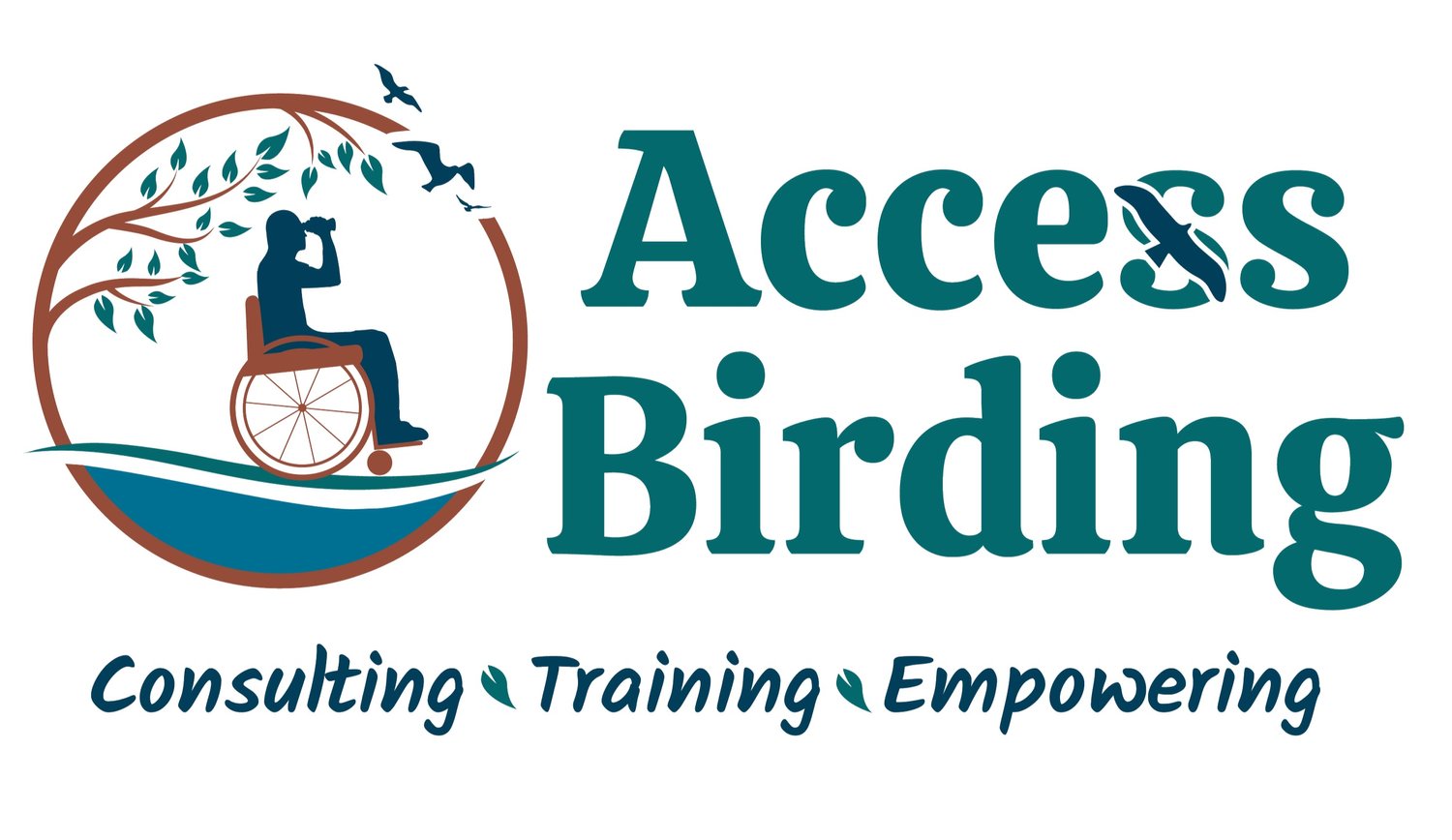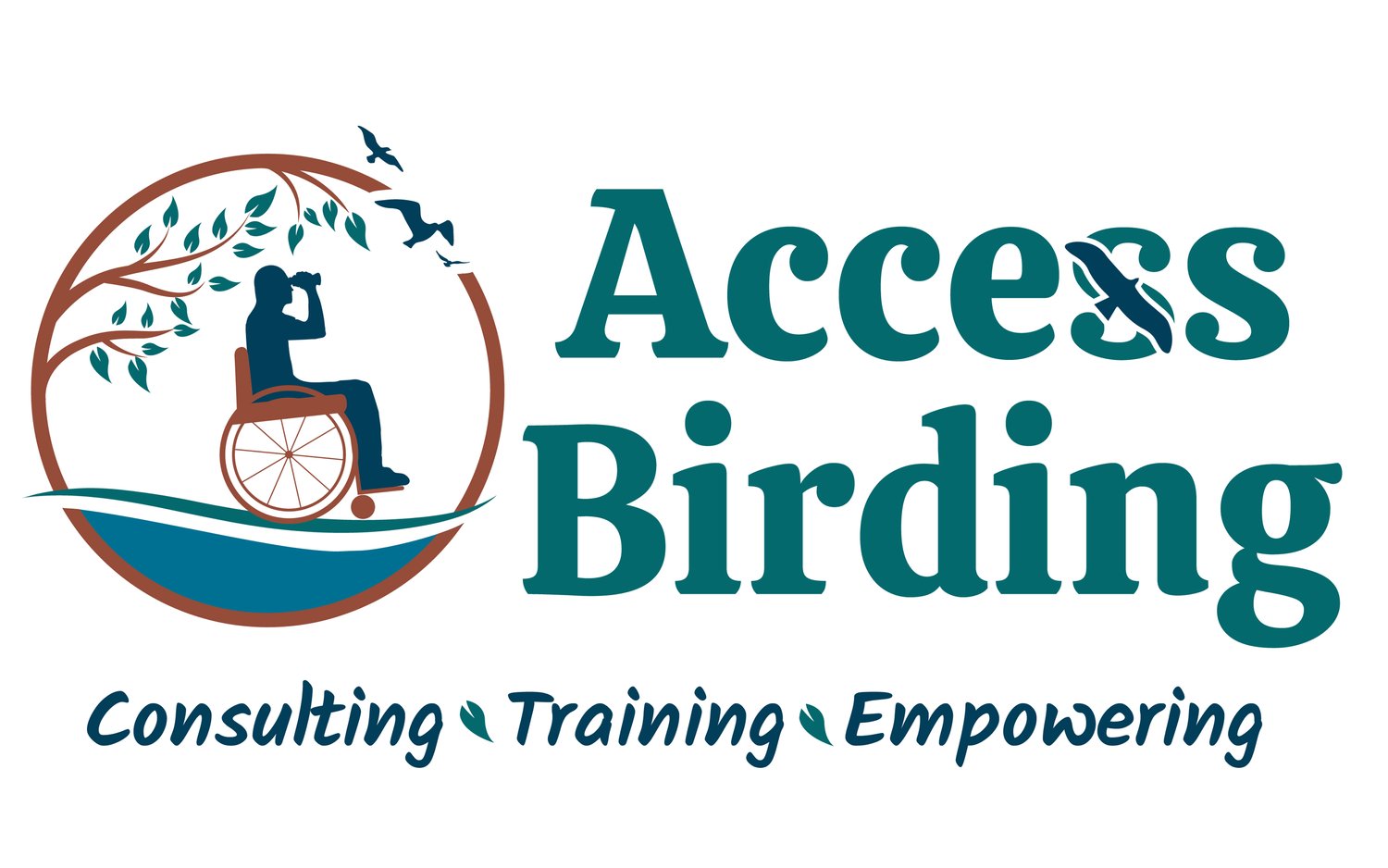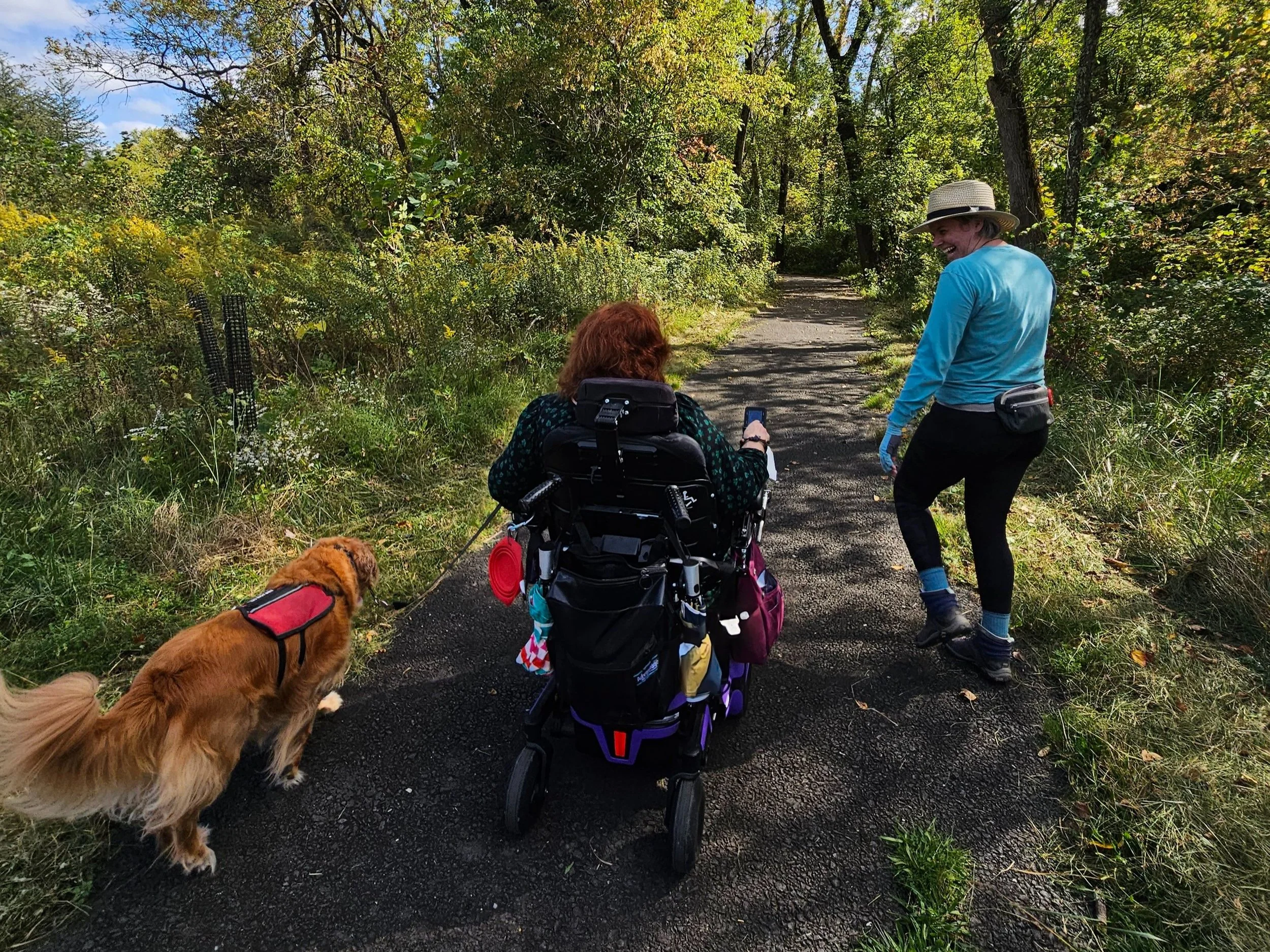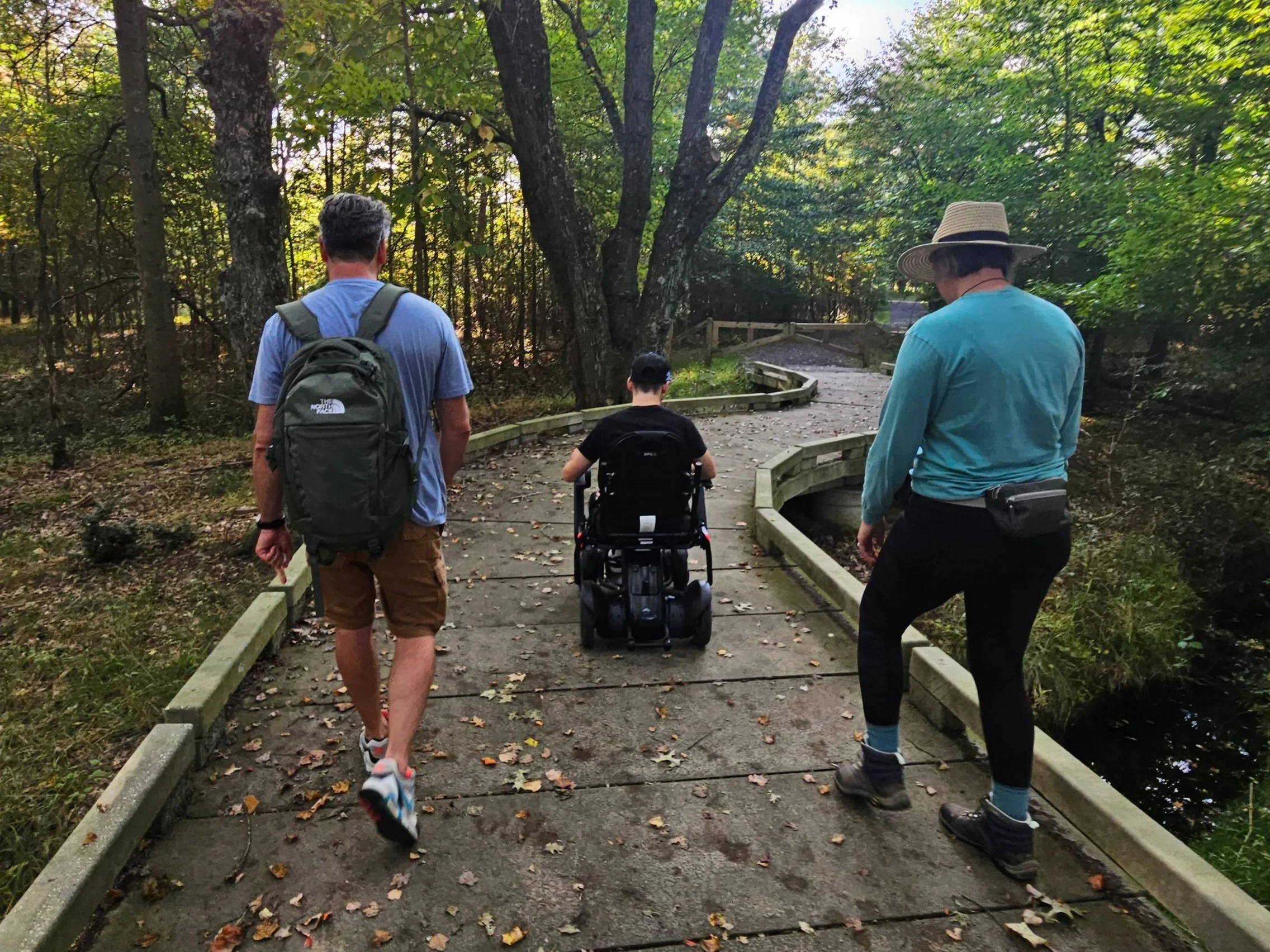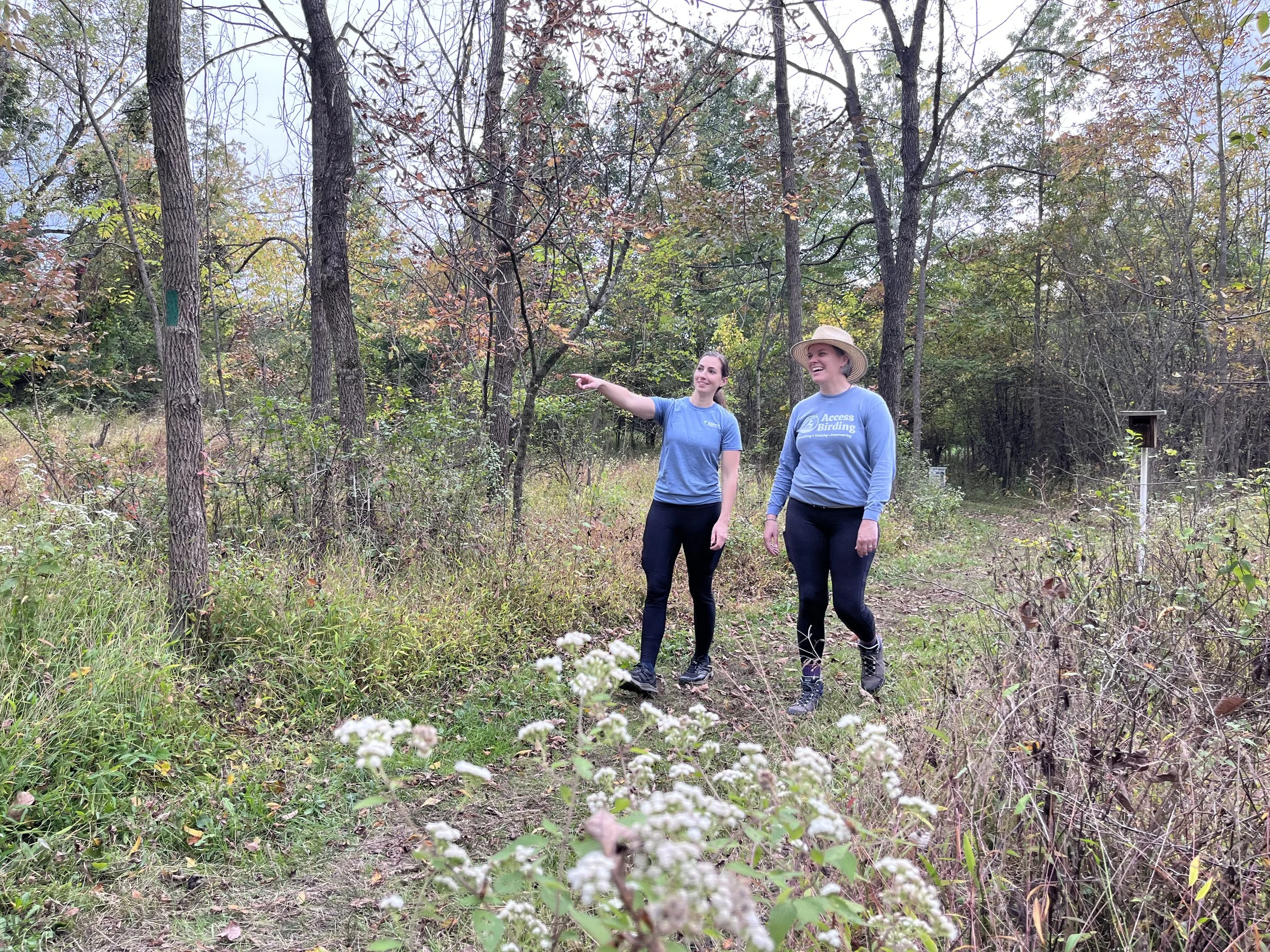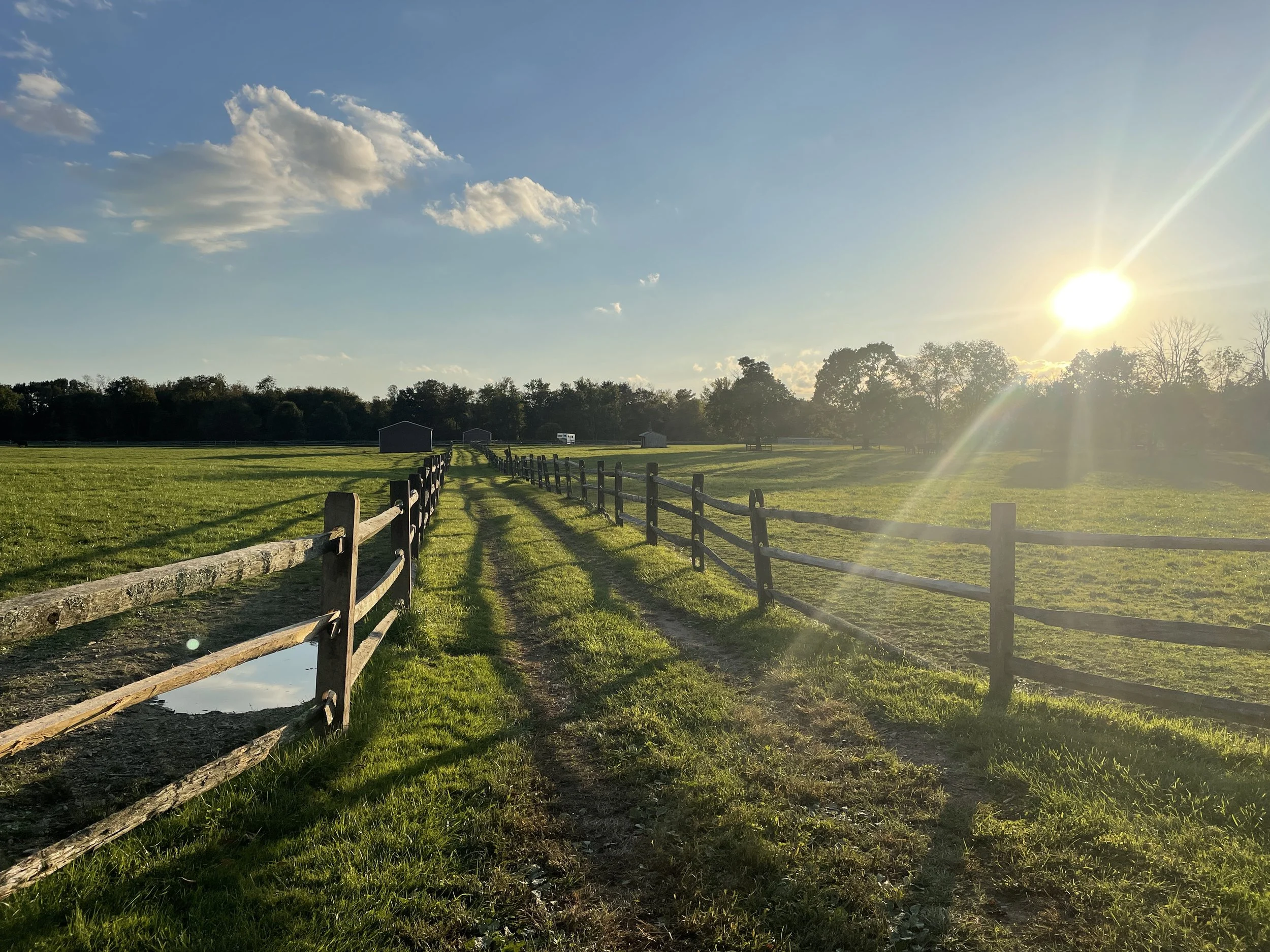Access Birding and Wissahickon Trails
An example of how we might work together on a large project
to increase access and inclusion for disabled birders and nature lovers
From June to November, 2023, Freya McGregor of Access Birding, LLC worked with Wissahickon Trails on a project to increase the physical accessibility of their 21 miles of hiking trails. Wissahickon Trails, previously the Wissahickon Valley Watershed Association, manages 12 preserves in Montgomery County, Pennsylvania, and 12 miles of the Green Ribbon Trail which runs along the Wissahickon Creek.
Initially a Request for Proposals (RFP) was sent out through various listservs and made its way to Freya. Only one other business responded, and quoted more than the available budget for just one quarter of the work that was hoped for. As a small business with low overheads, Access Birding was able to only slightly exceed the budget and cover all required components of work, along with an additional training, which are described below.
Margaret Rohde, Conservation Manager at Wissahickon Trails, has given us permission to share her RFP in case other organizations would like to apply for a grant for similar work and use her RFP as an example. We hope you’ll send it straight to freya@accessbirding.com if you do!
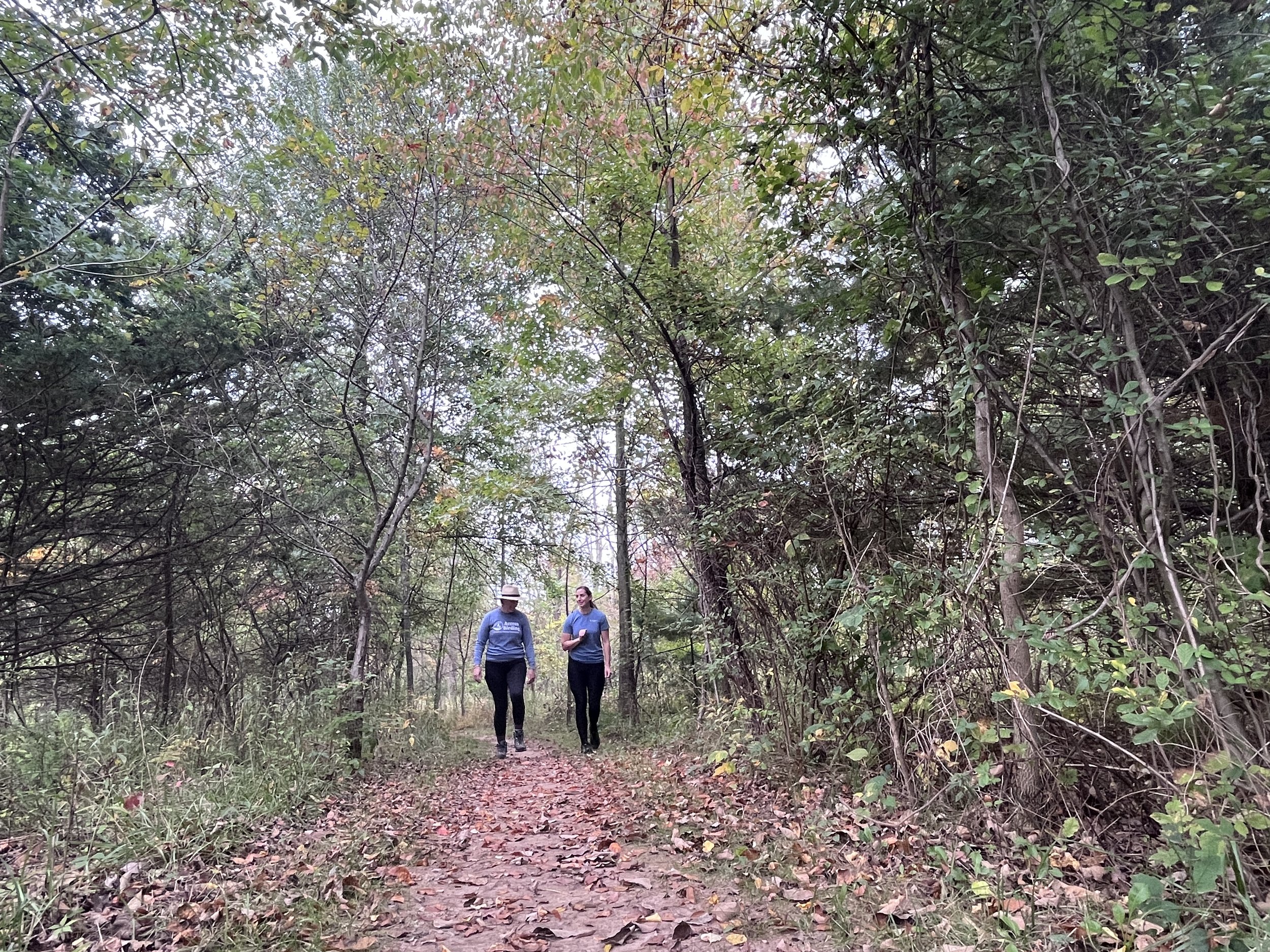
“After working with Access Birding, our organization, from staff and Board to volunteers, is empowered and equipped to make change and improve access and inclusion. And, importantly, we are all on the same page and inspired to do the work. Working with Access Birding was a pleasure, and our organization was fundamentally changed for the better!”
— Margaret Rohde, Conservation Manager, Wissahickon Trails
Facilitating the Trails Accessibility Advisory Council
One of the members of the Trails Accessibility Advisory Council, Wendy Elliott-Vandiver, who uses a power wheelchair, and her service dog talk with Freya as they visit Piszek Preserve. Photo: Margaret Rohde.
Wissahickon Trails was eager to hear from an even broader number of local, disabled community members and caregivers, so in June 2023, Freya designed an online survey for disabled trail users and outdoor lovers in southeastern Pennsylvania to share about their access needs. This survey covered questions relating to most-requested access features, trail surfaces, the sorts of information needed ahead of visiting a preserve, and access barriers trail users had experienced. This survey was open for two weeks, and 64 responses were analyzed to help inform and support the Accessibility Improvement Recommendations for Wissahickon Trails Report (see below).
Developing the Physical Accessibility at Wissahickon Trails Survey
On the trail at Crossways Preserve, a caregiver and his son — members of the Trails Accessibility Advisory Committee — provide detailed and specific feedback to Freya and Margaret about how the Crossways Trail could be improved. Photo: Margaret Rohde.
Engaging local disabled trail users as experts with lived experience (and compensating them for their time and input!) was important to Wissahickon Trails. But Conservation Manager Margaret Rohde didn’t have much experience facilitating groups or talking about the often stigmatized subject of disability.
Freya developed an Expression of Interest Form to help gather information about interested disabled trail users and caregivers of disabled trail users, and, after receiving more than ten expressions of interest, worked with Margaret to finalize the members of the Trails Accessibility Advisory Committee to ensure a broad number of access needs were represented.
Three virtual Trails Accessibility Advisory Committee (TAAC) meetings were scheduled between July and November 2023 for an hour and a half, and using her clinical skills and personal experience facilitating groups of people with a disability, Freya opened up honest conversations about real and perceived access barriers specific to Wissahickon Trails’ preserves, and what could be improved.
In addition, during the three week in-person consulting component of this project, Freya and Margaret met with each member of the TAAC at a different trail, and spent time talking with them about their feedback and recommendations for accessibility improvements. This feedback was incorporated by Freya into the Accessibility Improvement Recommendations for Wissahickon Trails Report (see below).
Consulting on accessibility improvements
Margaret Rohde, Conservation Manager, Wissahickon Trails, points out the historical buildings near the trail at Armentrout Preserve to Freya McGregor, owner and consultant, Access Birding. Photo: Elizabeth Robertson.
Over the course of three weeks in September and October 2023, Freya hiked the trails throughout Wissahickon Trails’ preserves, noting accessibility improvements and developing recommendations for addressing these. She and Margaret spent several hours together on the trails discussing what access features matter to whom and why, the challenges of maintaining trail surfaces and creek crossings in floodplains, and how trail improvements and maintenance requirements could be prioritized to have the most impact on the broadest number of disabled trail users.
Freya’s recommendations, including a summary of accessibility improvements ordered by level of difficulty and anticipated impact, were collated into the Accessibility Improvement Recommendations for Wissahickon Trails Report (see below).
Creating detailed descriptions of trails
One of the most common barriers to access for disabled trail users is a lack of concrete information about the location. It is not enough to describe a trail as “easy” and expect trail users to know specifically what that means. A long list of access features are important to different people who experience different access barriers, but staff at Wissahickon Trails weren’t confident they would be able to describe these effectively.
While out on the trails developing accessibility recommendations, Freya also created detailed trails descriptions for every trail, which will be shared on the Wissahickon Trails website, at trailhead kiosks, and in updated preserve maps.
The Pasture Trail at Willow Lake Farm, one of the preserves that Wissahickon Trails manages. Photo: Freya McGregor.
Training staff on disability basics and how to be an ally
Freya McGregor of Access Birding, facilitating a 60 minute training for all Wissahickon Trails staff about disability language and etiquette and how to be an ally. Photo: Margaret Rohde.
Getting all staff at an organization on the same page when it comes to inclusion, access, equity and disability is really valuable. This way, this work doesn’t just fall to one passionate staff member, and they don’t have to work so hard to continually advocate for organizational change.
Freya offered to facilitate a workshop for all staff during her three-week visit to southeastern Pennsylvania for this reason. Margaret Rohde, Conservation Manager at Wissahickon Trails, requested that some of the workshop be spent on mindset and lessons on how to be a good ally for disabled folks (much of which applies to being a good ally to BIPOC folks, LGBTQIA+ folks, women and others, too). Freya developed and facilitated this workshop, including a two page handout about allyship for staff to refer to in future, and received very positive feedback from attendees.
Compiling the Accessibility Improvement Recommendations for Wissahickon Trails Report
All the data from the activities described above were compiled into a 120+ page report. Survey data and Trails Accessibility Advisory Council recommendations were integrated into Freya’s recommendations for every trail that Wissahickon Trails manages, along with explanations about who these recommendations impact. Recommendations were also developed for improving the accessibility of maps, communications materials, interpretive, wayfinding and welcome signs, the website and more.
During the three week in-person consulting period from September-October 2023, two media outlets interviewed Freya McGregor of Access Birding and Margaret Rohde, Conservation Manager and Gail Farmer, Executive Director, Wissahickon Trails about this project. This resulted in two articles published (unfortunately, both are only available to subscribers).
A self-described ‘disabled birder’ hiked into Montco to help make the trails better for everyone, The Philadelphia Inquirer, October 11, 2023.
Wissahickon Trails conducting accessibility improvements, The Reporter, October 30, 2023.
Media exposure

“At Wissahickon Trails we were looking to learn what access barriers disabled people face when visiting our trails and preserves, and to understand their range of experiences, as well as learn what improvements we could make in order to create more welcoming and inclusive outdoor spaces. We had not heard from or worked directly with the disabled people in our community, and so any actions we took would have come from assumptions about different access needs, rather than lived experience. Before working with Access Birding, our staff had attended webinars and trainings about disability, but these were limited in scope and not specific to our area of work, and they did not address our specific concerns. We had an idea of what we could and should be doing, but not the full understanding needed to implement real, authentic change. Working with Freya meant that we had the benefit of the lived experience of someone with a disability, whose perspective was also informed by years of listening to and understanding the needs of people with different access needs. We not only came away with clear direction on how to move forward with improving our trails and preserves, but with Freya's support, we also came together as an organization around disability awareness, the importance of accessibility, and how to be good allies. After working with Access Birding, our organization, from staff and Board to volunteers, is empowered and equipped to make change and improve access and inclusion. And, importantly, we are all on the same page and inspired to do the work. Working with Access Birding was a pleasure, and our organization was fundamentally changed for the better!”
— Margaret Rohde, Conservation Manager, Wissahickon Trails
We would love to work with your organization on a project as in-depth as this. While we can cover a lot in a two hour consulting session or a 90 minute workshop, this broad community consultation model and intensive time spent getting to really know the Wissahickon Trails staff and preserves enabled the development of more deep, effective and site-specific recommendations. Yes, large projects like this involve a certain investment of time and money, but many local, state and federal grants exist to support exactly this kind of work, and it makes a great fundraising campaign theme too. After all, we all deserve to access birding.
